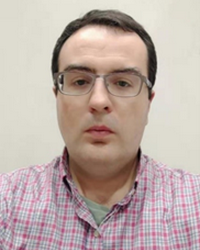|
Dr Salvatore Grasso - QMUL School of Engineering and Materials Science |
Prof. Salvatore Grasso studied for a Ph.D. at the University of Tsukuba, Japan from 2008 to 2011, and was jointly trained at the National Institute for Materials Research (NIMS) in Japan under the supervision of Yoshio Sakka, Academician of the International Academy of Ceramic Sciences. At present, he has published 84 SCI papers (19 by the first author), and he has cited more than 1,000 times; Invited to write 1 chapter of an English monograph; It has granted 6 patents in the UK, Japan and China. His research work was recognized by international ceramics research experts, and Bill Lee, a professor at Imperial College London, now president of the American Ceramics Society, commented that his work had opened up a new field. He has received the Best Doctoral Dissertation Award from the University of Tsukuba, japan, the Excellence Award of the Japan Society for Powder Metallurgy, and the Best Paper Award from science and Technology of Advanced Materials (STAM) magazines and Advances in Applied Ceramics magazines. His research on advanced ceramics not only has high scientific value, but also has great industrial potential in engineering applications.
His doctoral work (2008-2011) at the University of Tsukuba-NIMS (National Institute for material Science) Japan was focused on Electric Current Assisted Sintering Techniques and magnetic field processing. During his postdoc at Queen Mary University of London he pioneered the development of Flash Spark Plasma Sintering techniques and contributed to the development of MagMat (www.magmat.uk). In 2017, He was awarded the prestigious national 1000 Talent program became a full professor in ceramics at Southwest Jiaotong University (China). His current research is around the use of intense Electric (voltages up to 10kV and current up to 0.6 MA) and Magnetic fields (15 Tesla) to develop novel processing techniques to design unprecedented materials properties. Multi field assisted processing is a key component of his current research vision. The focus is on ceramic materials, including thermoelectrics, textured ceramics, battery materials. Low energy processing and sustainability are key aspects of his research vision. Explorative research is performed along with other groups located in China, UK, Japan, USA, Germany, Argentina and Italy using custom built equipment and multi-physics FEM simulations. He is currently an Editor of the European Ceramic Society, Associate Editor of International Journal of Applied Ceramic Technology and editorial board member of Advances in applied ceramics.
Prof. Grasso is currently a senior lecturer at Queen Mary University of London.


